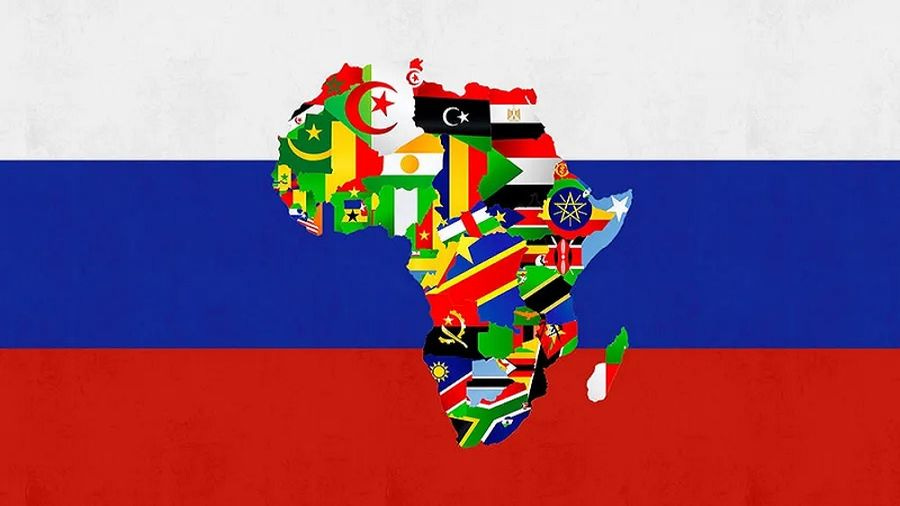Losing Ground in Africa: Can the U.S. Counter Russia's Expanding Influence?
The shifting power dynamics in Niger have significant geopolitical implications as Russia moves in to occupy a U.S. air base, highlighting the broader pattern of Russia's expansion across Africa.
The Facts:
In the midst of the world-shaking crises unfolding in the Middle East, Europe, and the Indo-Pacific, recent developments in the West African nation of Niger have significant geopolitical implications. As American troops make an "ignominious withdrawal" from Niger, Russian forces have swiftly moved in to occupy the same Nigerien air base that had previously hosted U.S. personnel. "This shift in power dynamics is part of a broader pattern of Russia, under the leadership of President Vladimir Putin, capitalizing on American and Western mistakes to expand its influence across Africa."
The West's intervention in the 2011 Libyan civil war was an ill-considered and naive decision that unleashed a series of catastrophes in the Sahel region. Decades of development aid and democracy promotion have culminated in the Wagner Group's conquests in Africa, just as American efforts failed in Afghanistan. The West has been hapless in dealing with the challenges in the Sahel region of Africa, partly because the conditions for the sustainable rise of democratic societies do not exist there, and the US foreign policy system has treated Africa as a 'laboratory' for human rights and democracy promotion rather than as a genuine national security priority.
Niger, a landlocked and largely desert country, may seem insignificant on the global stage, but its strategic location and resources have made it a key battleground in the ongoing geopolitical tug-of-war. Previously, Niger was a poster child for American democracy efforts in Africa and the foundation of U.S. counterterrorism strategy in the region. However, the recent military coup that has overthrown the democratically elected president and installed a junta that is now working closely with Russia's Wagner Group has dramatically altered the landscape.
It is clear Africa is not a high priority for the United States, which is preoccupied with the wars in Ukraine and the Middle East, and views China not Russia as the primary threat. The Biden administration needs to rethink its Africa policy, as the West has not yet absorbed the lessons of its past failures, allowing the Wagner Group to continue to expand its influence. The Biden administration has not adequately recognized that "Russia's expansion in Africa, like China's, poses a serious and long-term threat to the interests of the United States and its allies." While the United States is preoccupied elsewhere, Russia through the Wagner Group is successfully exploiting the weakness of Western-backed governments and the widespread hatred of France, the former colonial power.
Their operatives have amassed vast fortunes from the extraction of gold, diamonds, and other minerals, while delivering one humiliation after another to the West. This success has allowed the Wagner Group to become a powerful tool in Putin's broader strategy of acquiring lucrative resources, complicating Western security planning, and enhancing Russia's ability to evade sanctions. Wagner's operations in Africa have generated billions of dollars, some of which flow to the oligarch community around Putin and help fund the war in Ukraine.
The View:
It is clear that the Biden administration has been caught off-guard by Russia's strategic and calculated moves in Africa. While the U.S. has traditionally viewed the African continent as a platform for advancing its human rights and democracy promotion agenda, it has failed to recognize the region's growing strategic importance and the threats posed by Russia's expanding influence. The American foreign policy establishment's lack of attention to Africa has allowed the Kremlin to exploit the continent's vulnerabilities and advance its own interests at the expense of U.S. influence.
To compete with both Russia and China in Africa, the Biden administration would need to commit more sustained resources and attention across various government agencies. However, this would go against the planned budget declines, especially in the defense sector. The administration's designation of Russia as an "acute threat" rings hollow when it is unwilling to dedicate the necessary resources and sustained focus to challenge Moscow's expansion in Africa.
The administration's assertion that Russia "can't systemically challenge the United States over the long term" underestimates the Kremlin's ambitions and capabilities. Unless the United States is willing to cede more ground in Africa to its two most powerful adversaries, it must take stronger action to counter Russia's growing influence in the region. Failure to do so will not only embolden the Kremlin but also undermine the United States' global standing and its ability to shape the geopolitical landscape in a manner that serves its interests and those of its allies.
It is imperative for the U.S. to recognize that Russia's relentless push into Africa poses a serious and long-term threat to American interests and those of its allies. The stakes are high, and the time to act is now, before Russia's grip on Africa becomes too entrenched to overcome.
TLDR:
The U.S. withdrawal from Niger has allowed Russia to occupy a key air base, reflecting a broader pattern of the Kremlin's strategic expansion in Africa.
The West's intervention in the Libyan civil war and the failure of democracy promotion efforts have paved the way for the Wagner Group's conquests in Africa.
The U.S. views China, not Russia, as the primary threat and has not adequately recognized the long-term threat posed by Russia's expansion in Africa.
The Biden administration's Africa policy lacks the necessary resources and sustained focus to effectively challenge Russia's growing influence in the region.
Failure to counter Russia's expansion in Africa will embolden the Kremlin and undermine the U.S.'s global standing and ability to shape the geopolitical landscape.
The U.S. must recognize the strategic importance of Africa and take stronger action to counter Russia's influence, before it becomes too entrenched to overcome.
Insights From:
Why Russia Seeks to Dominate Africa - WSJ
America must counter Moscow’s ongoing advances in Africa - The Hill




